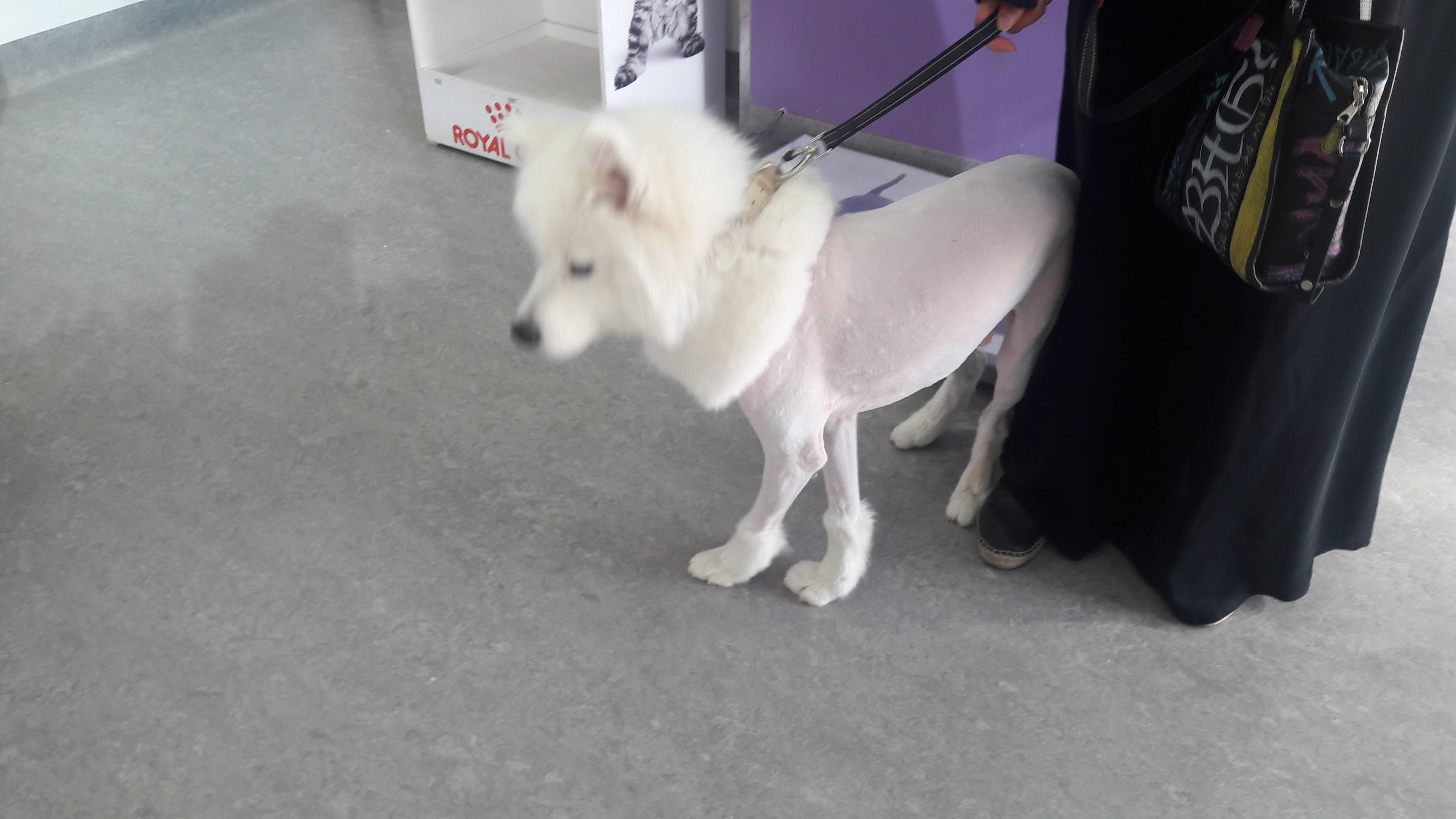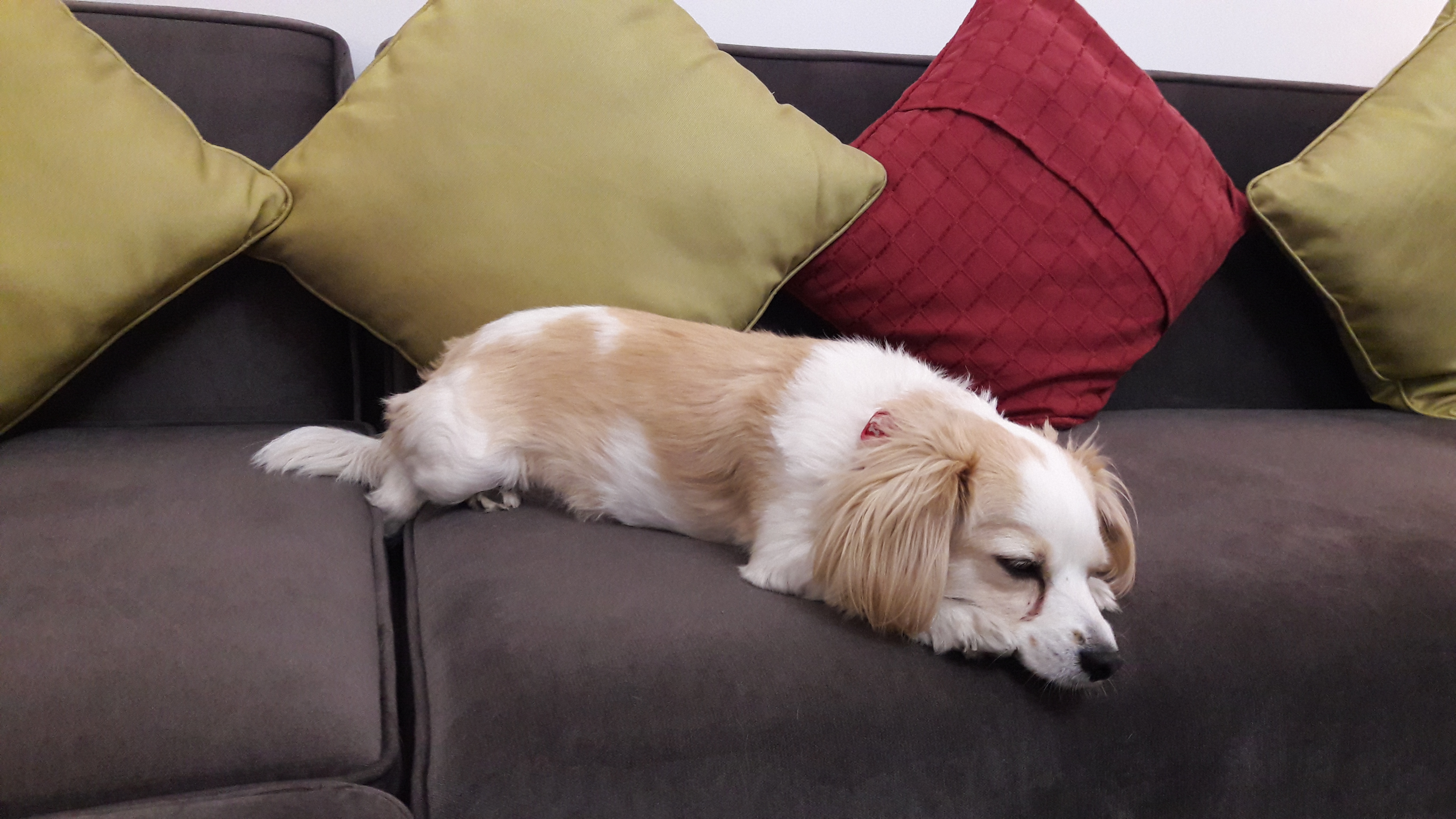Pet problems
As previously mentioned, we have adopted a rescue dog in
Riyadh. We did this about 2 years ago when Elaine came out to join me and Belle
has proved to be a reliable companion animal for us. When I say “rescue dog” I
should make it clear that she is totally incapable from rescuing anybody from
anything. Burglars would be invited to tickle her tummy, and burning food about
to set the kitchen on fire would be eagerly anticipated nourishment. Rescue dog
here means one saved from a fate of abandonment by uncaring Saudis, or worse,
by ex-pats who are leaving on final-exit and realise that they cant take Fido
with them. We hear stories of poor dogs being abandoned in the streets, thrown
out of moving cars, or even taken out to the desert and left by their erstwhile
owners there.
But help can be at hand for some of the lucky ones. There is an unofficial charity which organises desert drives and finds pedigree pooches in states of exhaustion and with paws burnt through, and they bring them back to the city, provide first aid and rehabilitation, and then try and find homes for them. Our dog was luckier, apparently she was handed into a vet and looked after (and funded by the “charity”) until we were offered her. She had been cleaned up, checked over, microchipped and spayed. She is a small breed, probably a cross with some Papillon and Corgi in her. A common rescue type in Riyadh are what we call Desert Dogs (or Wadi Dogs), a large local breed that seem to live at the edges of the city and are very friendly, but feral. They don’t appear on any of the dog breed charts, and are closest to Saluki or Pharaoh Hound. The security guards at our compound have started to look after one of these strays which unusually is not in a pack, and some of the compound residents have donated food to the guards to feed him.
Pet culture in KSA is very cat oriented, and whilst there are many feral cats in all cities, there are also many domesticated cats in Saudi and ex-pat homes. Dog pets are much fewer in number and outside the compound they are a distinct novelty. We understand that the rarity of dogs is due to their religious status requiring Muslims who have touched dogs to ritually wash themselves. They are not “unclean” in the same way that pigs are, but there can be a certain stigma to owning one. In my 3+ years out here I don’t think I have ever seen a Saudi walking a dog in public. If we take Belle out on a walk external to the compound, some adults will shy away from her, but children always seem drawn and want to touch her. We make sure they have their parent’s permission before we allow her to be approached. The rarity of dogs is well illustrated in supermarkets where there may an aisle for pet food, but of this dog products are likely to be about 10% of the total – if you are lucky. Fish, reptile and bird food is likely to comprise another 10% and the remaining 80% is for cats.
There are however certain types of Saudi that will want to own a dog. Unfortunately these are – in my opinion – too often for status symbols rather than for the joy of owning a pet. Exotic breeds are fashionable, and unfortunately one of these is the Husky, after its association with “Game of Throne” as seen on TV. There is surely no dog on the planet less suited to living in 40+ degree heat. But they are here, and in their dozens. The initial craze for getting them seems to have waned, and social media in Riyadh now regularly offers these dogs as second-hand pets, or indeed begs for them to be rehomed. Poor things.
Almost as bad is the fashion for grooming dogs. Belle goes to the vets every 3 months or so to get her coat trimmed so she does not overheat. But we are careful to ensure that she retains a decent covering of hair to protect her skin from direct sunlight. At the vets/groomers we see some amazing sights. Cats with “lion” haircuts seem to be quite common, ie shaved body, and a hairy mane, tail end and around the ankles. In some ways, cats seem to suit that style, almost like the classic Miniature Poodle cut. But we saw one poor dog, a Samoyed (see picture) nearly as hairy as a Husky being given a half-shave. Head and shoulders left hairy, and the chest to the ankles as bald as a coot. The woman who had brought in the unfortunate creature had done so without her son’s (the dog’s owner) knowledge, and was starting to regret her decision already. But what responsibility should the vet have in this circumstance? In the UK it is quite possible that in the case where an animal was subjected to cruelty or neglect (albeit subjective topics) the owner could be prosecuted. But could the vet be an accomplice to cruelty by shaving a dog’s solar protection? Discuss.

Unbelievable!
Back to exotic pets though. There is a pet souq in the southern part of Riyadh where we hear that a wide variety of critters can be bought and sold. I have not been there, so cannot speak from experience, but friends have reported a wide selection of animals on sale, many of which would be illegal to trade in Europe. Apparently the souq has been cleaned up a bit from days of old, but one friend who has been here over 10 years swears there used to be live baby gorillas there. Now it’s “only monkeys”, so that’s all right then. There are also young big cats, and all sorts of birds. I have heard that some of these have their feathers dyed to make them look more appealing, but what adding chemicals to the delicate feathers does for their wellbeing and lifespan I’m not sure. Other birds found there include geese (imported from where?). I have never heard of a goose being kept as a pet, although I know that they make very good guards for property, and a small flock of wing-clipped geese can appear fearsome to intruders. (As an aside, there are several whisky distilleries and bonded warehouses in Scotland that keep geese for that purpose). I suspect the Saudi geese are likely to end up in ovens. Also destined for the cookpot are large native lizards, called dhabs which are plentiful at the souq. These apparently are sold by the dozen to people who like to go to their tents in the desert at weekends. I have no idea how dhabs are cooked, but they are certainly edible, but eating one of them is not on my bucket list.
When we complete our time in KSA we intend to take Belle home with us, and to this end we have already bought a flight crate for the journey. We have all the health certificates we need to take her from Saudi to the UK, filled in a “pet passport” which contains details of her microchip, inoculations and in particular her rabies vaccination details. We know an ex-pat who specialises in the import and export of pets, and he will be our go-to man when the time comes. Apparently, the airlines which will transport live animals are few in number, and space has to be booked well in advance. At least Belle has a long-ish snout, because if she was a short-nosed breed she would be further restricted to the months she could fly. There are international airline rules in place for such dogs which are in place because of the difficulty they have in breathing (there is low efficiency in converting very hot or cold air to the optimum lung temperature).

Belle (also answers to Shreddie - don't leave half-finished crosswords lying around)
At least she shouldn’t have to face a spell in quarantine, those days are long past in the UK, as long as the health and paperwork are in order. I remember back in the mid 1990’s when I was a duty manager for Eurostar at London’s Waterloo International Terminal, being advised there was a dog loose on the platforms. A member of staff had caught it, but there was uncertainty whether it had wandered into the station via the tracks (unlikely) or it had come off an arriving train from the continent (also unlikely). We judged that it was an immigrant dog because it did not respond to the command “Sit!”, but did so to the French equivalent. We had no procedure in place for such an event, so a phone call to my opposite number at Heathrow ensured that it would be picked up and taken there for quarantine – until someone came forward to collect it. I don’t recall an owner being found though. In a slightly different vein, the security screening at Waterloo once stopped a live rabbit leaving the UK. The back-story there concerned a young French girl who had been sent to England to visit some nuns for the summer, took a long time to settle and was given the rabbit as a soother pet. She became attached to the wee beastie and decide to take it home, and was dropped off at WIT with it. With her transport gone, there was no option but for the rabbit to be confiscated and it was agreed with the girl that we would keep it for a few days until she could get something arranged. The rabbit lived in the Terminal Control room for a week, and nothing was heard from the girl, her family or indeed the nuns, and eventually one of the staff there took it home and adopted it.
But, taking a dog home won’t be a cheap exercise, we have put aside GBP 2,000 which I certainly hope will cover all the costs and leave us some change too.
